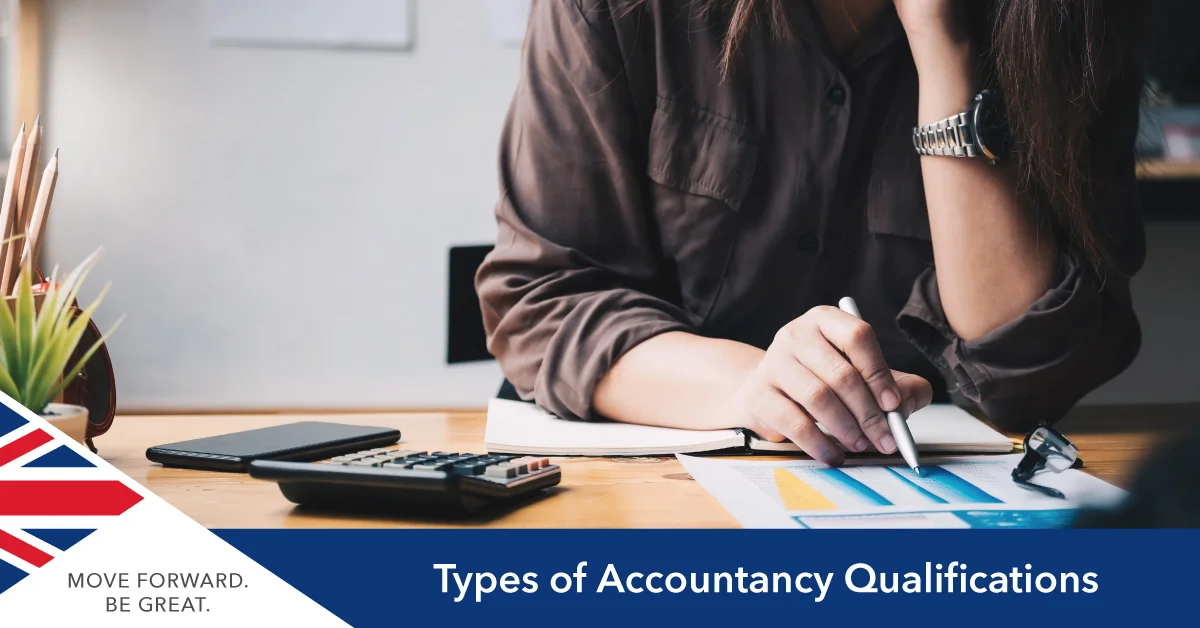Accounting professionals generally hold a bachelor’s or master’s degree when pursuing a career in the banking or accountancy sector, and the various accountancy qualifications available will assist you when looking to launch your finance and accountancy career.
Because of the vast array of accounting qualifications available, it can seem quite overwhelming when faced with abbreviations such as ACA, CIMA and CIPFA. The qualifications you choose will depend on what you have previously studied and what career path you wish to take. Accounting qualifications are primarily focused on nurturing your understanding of economics and mathematics, as well as other key skills.
These accounting courses can be taken at any stage of your career, and each has varied entry points to make them as accessible as possible. Learn more about different types of accounting qualifications below. If you want to learn more about studying accountancy in the UK, arrange your free consultation with SI-UK London today.
Different Types of Accountancy Qualifications in the UK
AAT
The AAT qualification (Association of Accounting Technicians) is the starting point for anyone who wishes to pursue a career in accountancy but has no prior experience. The AAT Level 1 is equivalent to the accounting technician level, whilst the AAT Level 2 is equivalent to GCSE and AAT Level 3 to two A-Levels.
ACCA
The ACCA qualification (Association of Chartered Certified Accountants) is a graduate entry route into the accountancy industry. An ACCA course is generally completed in 3-4 years and to gain an ACCA qualification, candidates will need to:
- Complete a maximum of 13 exams, depending on prior experience and qualifications
- Complete an Ethics and Professional Skills module
- Show evidence of three years of practical work experience in an industry-relevant role
ACA
ACA is a professional-level examination that is available for finance professionals. Students who complete the ACA qualification are rewarded with the title of “ICAEW Chartered Accountant'', and there are 15 examination modules that test applicants on topics such as financial management, business, law and much more.
The ACA qualification can be achieved by following one of the many routes available. Still, a mandatory requirement is to acquire 450 days of work experience at an ICAEW-authorised training employer beforehand.
- ACA eligibility requirement: A recognised degree from a UK university (or any international equivalent) or any award comparable to GCSE and A-Level entry requirements.
CIMA
The Chartered Institute of Management Accountants (CIMA) is a finance qualification that helps acquire the designation of a Chartered Global Management Accountant.
On average, completing a CIMA qualification can take 3-6 years, during which all applicants must pass 12 exams. Depending on the student's background, the route of CIMA can vary as there are different paths for undergraduates, CMA graduates, etc.
CIPFA
CIPFA (Chartered Institute of Public Finance) is one of the only finance bodies dedicated to public finance services. The syllabus of these examinations includes but is not limited to, green finance, data analytics, ethical accounting, and more.
Students generally need 3-4 years to complete the CIPFA qualification, but this can vary depending on the candidate's qualifications and work experience. The exams are held in four stages and consist of 12 modules, training individuals with technical knowledge and exposure to public sector functioning.
- CIPFA eligibility requirement: Three GCSEs, grades A-C, and two A-levels, grades A-C or equivalent. BTEC and SCOTVEC national certificates are acceptable as well. If a candidate has three years of work experience but not the right academic experience, they can appear for the CIPFA examination.
Study Accountancy in the UK
If you wish to study accountancy in the UK, book a free consultation with SI-UK London's education experts today.



 My consultant was very helpful and motivating. She helped me every step of the way, even when the deadline was so close. I feel I could not have done it without her. I'd highly recommend this service to any and all of my many friends interested.
My consultant was very helpful and motivating. She helped me every step of the way, even when the deadline was so close. I feel I could not have done it without her. I'd highly recommend this service to any and all of my many friends interested. 









